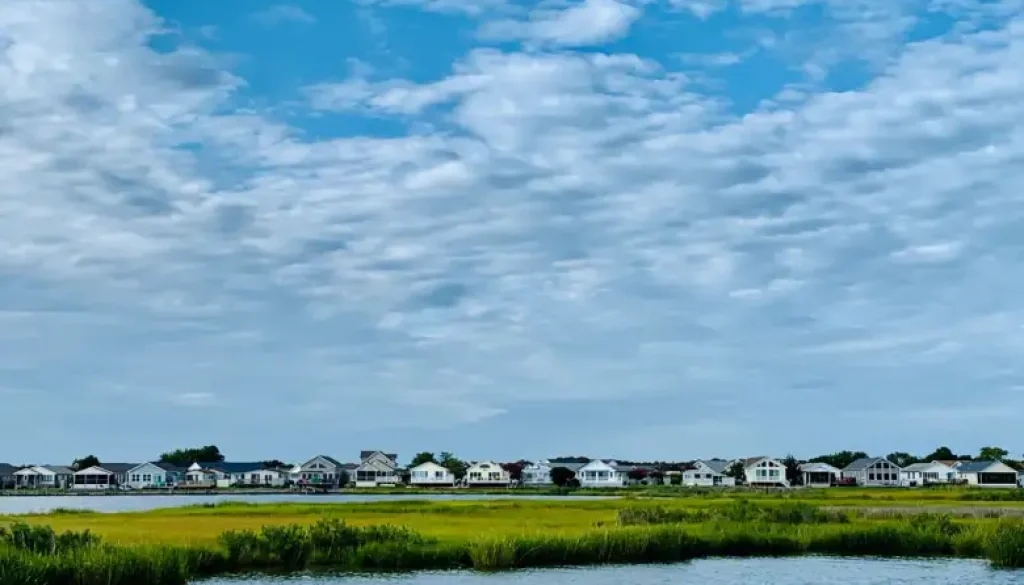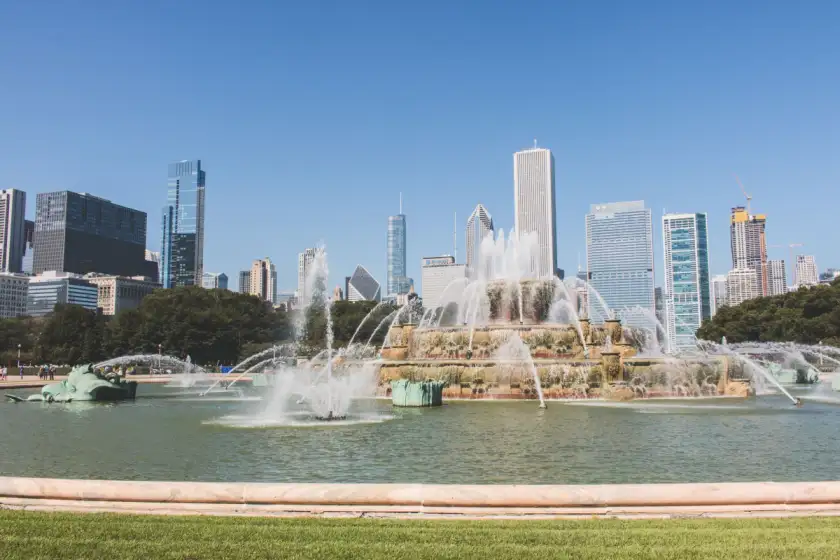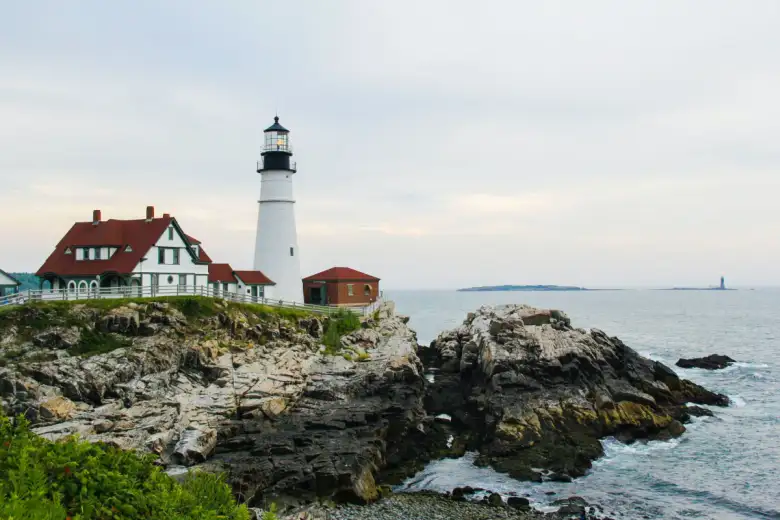Grants for Seniors in Maryland
Last Updated on April 18, 2024 by Rachel
Help for Seniors in Maryland – 30 Assistance Programs
Maryland is a fabulous state considering outdoor activities, excellent healthcare options, and its famous crab cakes. It is also a very rich and safe place thanks to various factories including the cheesecake factory. However, the cost of living in this state can be more expensive compared to others. Therefore, there is a wide range of programs and opportunities for seniors who are facing financial challenges.
State Resources for Seniors
Maryland provides valuable resources for seniors through the Department of Aging. Elderly residents can get information on various programs that are available to meet their needs across the state. The Department also funds some programs and directly administers others. Interested seniors can sign up for a mailing list to get information on the latest services available. These resources can be accessed at https://aging.maryland.gov/Pages/default.aspx.
Financial Assistance
Maryland’s Temporary Cash Assistance is a financial assistance program that was constituted by the State of Maryland. The goal of this program is to ensure that people can have their economic independence.
Eligibility Requirements
- You must be living in Maryland.
- You must be a citizen of the United States.
- You must not be working.
- You must prove your economic difficulty.
- You must at least have one child younger than 18 years of age.
To learn more, please go to https://dhs.maryland.gov/weathering-tough-times/temporary-cash-assistance/ or make a phone call at 800 332 6347.
Accessible Homes for Seniors was created by the Maryland Department of Housing and Community Development to offer financial assistance for older people who wish to have their own homes. Seniors who would like to have their own home but cannot afford or are not credential to receive a loan from a bank are eligible to apply. This program offers to grant money to support their intention. People who are 55 years of age or above are eligible for this benefit. To read more, please go to https://dhcd.maryland.gov/Residents/Pages/ahsp/default.aspx or call the toll-free number 800 538 7781.
Elderly residents of Maryland can apply for financial assistance through the Supplemental Security Income (SSI) program. Provided by the Social Security Administration, SSI helps seniors who have limited income and resources for sustenance. SSI beneficiaries receive monthly payments which can be used to meet their basic needs of food, clothing and shelter. Eligibility for the program is decided based on income and asset levels. The amount each individual gets is determined by personal needs and income. The SSI program is available for seniors aged 65 and older, however those with disabilities can apply earlier. Seniors can find relevant information to the program at https://dors.maryland.gov/consumers/benefits/Pages/SSI_SSDI.aspx.
The Public Assistance to Adults (PAA) program helps challenged older citizens pay for their personal needs and any costs associated with additional care. The program focuses on seniors who reside in assisted living facilities licensed by the Maryland Department of Health (MDH). For seniors to be eligible, they must have applied for SSI benefits, and the cost of their care must exceed their countable income. Asset restrictions also apply to this program. The exact amount awarded to each person varies, depending on their individual care requirements. For more information, visit https://dhs.maryland.gov/weathering-tough-times/public-assistance-adults/.
Housing and Rent Assistance
Subsidized Housing is a federally sponsored program that aims to help low and moderate-income individuals. Senior citizens are one of the priority groups for this housing service. Eligible candidates may get to stay in an affordable and decent house. For more information, please go to https://aging.maryland.gov/Pages/senior-assisted-living-subsidy-program.aspx or by phone at the toll-free number 1 844 627 5465.
AARP Foundation is a local charity organization that is intended to provide housing assistance for older citizens who are 50 years of age or older. Especially adult citizens who have a disease or in a vulnerable position are qualified for this benefit. Apart from providing low-cost and comfortable housing units, this organization offers various programs for senior citizens. Back to Work 50+ is a special program that provides seminars, workshops, and training for people who would like to go back to the business world. Connect2Affect is another service to make sure that seniors are not isolated from social circles. The program brings people together via different social events. Find out more about the programs of AARP Foundation at https://www.aarp.org/aarp-foundation/about-us/?intcmp=FOU-NAV-ABT or dial the toll-free 1 800 775 6776.
Catholic Charities Maryland is a non-governmental organization that offers affordable and secure apartments and house units for the elderly. Senior citizens who are having economic problems are qualified for this service. The house units have specific services for seniors including adult day rehabilitation and nursing care programs. To see more, please visit https://www.catholiccharities-md.org/services/seniors/ or dial 667 600 2000.
Additionally, Home Repair Grants For Seniors is offered to keep homes well-maintained and secured for elderly people.
Seniors in Maryland who are aged 55 and older may qualify for home repair grants under the Accessible Homes for Seniors Program. The program is offered by the Maryland Department of Housing and Community Development to help make accessibility related modifications and improvements. Residents can receive grants of up to $25,000 for modifications like doorway expansion, ramp installation, wheelchair accessible showers, etc. More information on the program can be sought from https://dhcd.maryland.gov/Residents/Pages/ahsp/default.aspx.
Habitat for Humanity also offers a Home Repair program that can assist low-income seniors with carrying out essential repairs and renovations. The program is open to residents with income below 80% of the Area Median Income, helping to make homes safer and healthier. Depending on income level, beneficiaries are expected to pay between 1% to 5% of the home repair cost, with an allowable minimum of $125. The repairs covered include plumbing, roof replacement, water heater replacement, drywall repairs, etc. Seniors can visit https://habitatmm.org/how-to-apply/home-repair-services-for-homeowners/home-repair-program.html for more information.
In Baltimore City, the Office of Rehabilitation Services helps residents make emergency repairs to resolve health and safety issues in the home. These repairs include things like heating, roofing, electrical systems, and modifications for accessibility. Seniors over the age of 62 can also get assistance through the Emergency Roof Repair Program. For further details and programs, visit https://dhcd.baltimorecity.gov/cs/rehabilitation-services and https://dhcd.baltimorecity.gov/hho/rehabilitation-and-repairs.
Healthcare Assistance
Low-cost medical insurance is available for seniors through the Medicaid program. With coverage from this program, seniors get help paying for their medical bills and other covered costs. The premiums are generally low and may sometimes be waived for cases of extreme hardship.
The Medicare program specifically caters to seniors who are at least 65 years old. This program takes into account the health considerations of seniors in that age group, offering coverage for likely issues. In Maryland, the elderly can also qualify for the Medicare Buy-in Program which greatly subsidizes the costs associated with Medicare assistance. Information on these programs is available at https://dhs.maryland.gov/weathering-tough-times/medical-assistance/.
The Community Free Clinic offers medical care to uninsured seniors with no associated cost. The clinic helps them get proper medical services that may ordinarily be inaccessible due to financial constraints. At the Community Free Clinic, seniors can get free diabetic and blood pressure monitoring, orthopedic services, laboratory testing, etc. Referrals are also given to people whose conditions require specialized medical care. Other services offered can be found listed at https://mycommunityfreeclinic.org/our-services/medical-clinic.
Shepherd’s Clinic provides healthcare services to residents who cannot afford medical insurance but do not meet the conditions for government aid (Medicaid). Special care services are offered to deliver the best possible care to seniors who come in for assistance. Food planning is also available to help elderly patients get the best nutrition. Seniors who are facing issues with transportation can also notify the clinic to get arrangements made for their transportation to medical appointments. For more information, visit https://shepherdsclinic.org/.
Caregiver Services Corps is subsidized by the Maryland Department of Aging to support the wellbeing and health condition of older adults. Seniors who are unable to take care of themselves at home because of their illnesses are qualified for this benefit. Some of the services that are presented by this division are controlling the daily health condition, helping repairment at home, preparing daily meals, assisting with taking a shower and hygiene issues and training seniors on how to benefit from the internet and technology. For more information, please visit https://aging.maryland.gov/pages/CSC.aspx or dial 1 800 243 34 25 or 410 767 110.
The Elder Abuse Prevention Program is one of the main programs in all states that is intended to protect older people from dangerous persons who deceive them. Apart from fraud and burglary, there are several forms of mistreatment against seniors including physical abuse, financial exploitation, psychological abuse, sexual assault, and neglect. These issues are very common among seniors. Seniors themselves or anyone who thinks a senior is mistreated can get in touch with this program at https://aging.maryland.gov/Pages/elder-abuse-prevention.aspx or make a phone call at 911 or 1 800 243 34 25.
Help with Dental Care
Elderly residents of Anne Arundel County in Maryland can get affordable dental care through the Anne Arundel Dental Access Program (AADAP). This program serves uninsured and underinsured residents, allowing them access comprehensive dental care at reduced prices. Seniors can reduce the cost of their dental care by up to 25%, getting care from their local dentists’ office. Eligible seniors get a special card which they can present at the dental clinics. This card is valid for one year, after which it must be renewed. The application form can be downloaded form https://www.aahealth.org.
The Maryland State Dental Association operates a Missions of Mercy program where dentists and volunteer staff hold free dental clinics across the state. The clinics are hosted as two-day events which provide standard dental care low-income residents. Missions of Mercy helps reach out to seniors who would be unable to access proper dental care without assistance. Information on the program is available at https://msda.com/dental-benefits-form/.
Donated Dental Services are provided by the Maryland Foundation of Dentistry. Eligible seniors receive dental treatment and lab examinations for free while under the program. These services are provided in private dental offices and patients are required to keep all their dental appointments. Due to the nature of the program and possibility of waitlists, emergency services are not available. Application details for the program can be found at https://mfd-dds.org/application.
For more information on free and affordable dental care for the elderly, see Dental Grants in Maryland.
Utility Bills Assistance
In Maryland, the Office of Home Energy Programs (OHEP) helps low-income residents by offering support and assistance with energy bills payments.
The Maryland Energy Assistance Program (MEAP) helps seniors cover their household heating bills. Through the program, seniors can get funds disbursed directly to their heating source supplier. This is primarily the electric utility company or a fuel supplier. The payments are intended to ensure continuous heating services throughout cold months.
The Electric Universal Service Program (EUSP) provides financial assistance to help with electric bills. Seniors who qualify for this program get a part of their bills paid off, while the remaining portion is divided into smaller monthly installments to help spread out the cost burden.
For seniors whose past due utility bills exceed $300, a grant provided under the Arrearage Retirement Assistance Program may be issued to them. Under this program, elderly residents of Maryland can receive up to $2,000 to settle outstanding bills. While grants can only be received once in 5 years, seniors may receive more frequent help under special circumstances.
Elderly residents who face challenges with paying for their drinking water and wastewater bills can apply for the Low Income Household Water Assistance Program (LIHWAP). The program can help financially challenged seniors experiencing hardship with payment for water utilities. Priority is usually given to residents who have over 30 days of outstanding payment(s) and are at the risk of being disconnected. More details on LIHWAP can be found at https://dhs.maryland.gov/office-of-home-energy-programs/low-income-household-water-assistance-program/ and a paper application can be downloaded from https://dhs.maryland.gov/office-of-home-energy-programs/.
The Low Income Home Energy Assistance Program (LIHEAP) in Maryland was created by the federal authorities to support low-income families. Eligible seniors may have a certain amount of discount on their utility bills. The main criteria are the total household income of the family and the household size of the family. To learn more and apply, click on https://dhs.maryland.gov/office-of-home-energy-programs/how-do-you-apply/.
The Low Income Usage Reduction Program was created by Columbia Gas which is a local electricity company in Maryland. This is a weatherization program for residents who are facing financial hardship to pay their utility bills. Senior citizens who are having a hard time paying their utilities are eligible to apply for this program. To access the application form, click on https://www.columbiagaspa.com/energy-efficiency/for-your-home/low-income-usage-reduction-program# or call 1 800 537 7431.
Poverty Guidelines are the most important factors in getting help with utility bills and grants. For more information on these programs, visit https://dhs.maryland.gov/office-of-home-energy-programs/.
Food Assistance
The Supplemental Nutrition Assistance Program (SNAP) helps seniors get access to food by providing them with financial benefits. Eligible senior citizens receive and Electronic Benefits Transfer (EBT) card which they can use to purchase certain approved food items from grocery stores. The EBT card is a debit card where seniors receive their monthly SNAP benefits. The amount of money received depends on the income of the senior, the household size, cost of buying and preparing nutritious food, and some other considerations. SNAP benefits may not cover the entirety of the monthly feeding budget but can handle a significant portion of the food expenses for each senior. Seniors can check https://dhs.maryland.gov/supplemental-nutrition-assistance-program/about-the-food-supplement-program/ for more details on SNAP in Maryland.
The Commodity Supplemental Food Program (CSFP) provides resources to help seniors over the age of 60 support their dietary needs. Through the CSFP, seniors receive monthly packages containing items like cereals, meat, canned fruit and vegetables, milk, etc. which they can use to augment their diet. The CSFP is not intended to provide food for the entire month, but rather to ensure that seniors get food that meets their nutritional requirements. Nutrition education is also provided alongside the food packages. In Maryland, the program is managed by the Salvation Army and details can be found at https://www.sa-md.org/blog/commodity-supplemental-food-program-csfp.
The Maryland Food Bank provides food to financially challenged seniors in the state. Seniors can visit one of the many food distribution sites in the state to pick up food items for their consumption. To facilitate easy access to the resources, the organization utilizes a locator tool which gives information on the nearest distribution centers. This tool can be accessed at https://mdfoodbank.org/find-food/.
DMG Grocery Store is a food support program for low-income people. This program was created by the Salvation Army in 2018. This is simply a grocery store that has fresh, healthy, and nutritious food for people in need. Seniors who need food assistance may apply for this program. To learn more, go to https://www.sa-md.org/dmg-grocery-store or dial 410 783 2920.
Food Pantries is another service that was formed by the Salvation Army. These pantries serve hot and nutritious meals every day for people in need. These mobile food pantries travel across the state. This program also assists homeless people with free clothing, blankets, and toiletries. Further information can be accessed by clicking on the following link https://www.sa-md.org/feeding-programs.
My Groceries to Go! Is a popular food support program in Maryland. It is also recognized as the Commodity Supplemental Food Program among residents. This service is subsidized by the federal government particularly for seniors having financial difficulties. Eligible applicants can receive a nutritious and healthy food bag each month. To apply, please follow the link https://mdfoodbank.org/hunger-in-maryland/approach/programs/my-groceries-to-go/ or contact 410 737 8282.
Transportation Assistance
Seniors who are still able to drive and work can get a special kind of assistance from the Maryland Transportation Assistance Program. The program is provided with help from a network of supporting partners like Vehicles for Change and helps eligible seniors get a car of their own. The cars provided come from a pool of cars donated by well-meaning residents and can help significantly reduce commuting challenges which some elderly residents may face. Seniors can find relevant information on the program at https://dhs.maryland.gov/weathering-tough-times/transportation-assistance-program-tap/ and https://www.vehiclesforchange.org/.
Non-emergency medical transportation is available for seniors who are covered by Medicaid. This service is provided by the Maryland Medicaid Transportation Program. Eligible residents can schedule rides to doctors’ appointments within their regions. Long distance transportation is provided on somedays to assist those who need special care. Various transportation arrangements are available so that seniors can pick the best option that suits them. More details on the transportation arrangements can be obtained from https://www.worcesterhealth.org/get-help-menu/.
Seniors who reside in Montgomery County can get assistance with transportation through the RIDE ON Program. This program provides discounted transportation services to seniors over the age of 65, allowing them to access buses serving scheduled routes. The buses are wheelchair accessible, to support seniors with mobility challenges. Other programs in the county include Connect-A-Ride, Call-n-Ride, etc. The programs offer various services, ranging from volunteer transportation to discounted taxi services and Metro access. More details on these programs can be found at https://www.montgomerycountymd.gov/dot-transit/seniors.html
Charities and Organizations
Partners in Care is an organization that offers assistance to seniors in Maryland. Although there are fee-based services, a wide range of free services are also offered. Transportation arrangements are available to help get elderly citizens to doctors’ appointments, grocery stores, etc. These transport arrangements also include special provision for those with restricted mobility, offering curb-to-curb services. Assistance is also provided in the form of minor repairs to the home. While seniors may have to pay for the materials used, the repair service itself is free of charge. Community housing is available to help seniors avoid isolation, and promote socialization. For more information on the services of Partners in Care, visit https://partnersincare.org/community-for-life/.
Catholic Charities operates several Senior Communities to support the wellbeing of older residents of Maryland. These communities provide a home to seniors. Meals, housekeeping services, laundry, etc. are provided to seniors who reside in these care homes. The program is open to seniors who are aged 62 and above, with low income which falls within the established guideline levels. Further details on the activities of Catholic Charities can be found at https://www.catholiccharities-md.org/services/senior-communities/.
The Salvation Army of Maryland offers different programs to care for challenged Maryland residents. Food is provided at pantries across the state, where seniors can come in to pick up shelf-stable items for later preparation. Mobile food distribution is also available, bringing the food to areas where the most concentration of challenged people are. Apart from food, seniors can receive money to help them pay for their rent and utility bills, ensuring that they always have a comfortable place to stay. Shelters are also offered for seniors who have already been evicted from their homes. For more information on the programs offered by the Salvation Army, visit https://www.sa-md.org/.
Assistance for Senior Veterans
Partners in Care provides supportive services for elderly veterans in the state. These services are provided through a network of other veterans who volunteer their time and resources to assist their aged counterparts. Veterans can get assistance with transportation to various appointments or grocery stores, along with help making repairs to their homes. Social networking services and visits are also in place to combat the effects of loneliness and identify other areas of need where Partners in Care can step in to help. Veterans who wish to take advantage of these arrangements can visit https://partnersincare.org/veterans-helping-veterans/ for further information.
The Maryland Veterans Trust Fund assists elderly veterans in the state with resources to help them maintain their homes. The organization provides temporary assistance to help veterans pay for things like utilities and rent or mortgage. The aim of this assistance program is to ensure stability in living arrangements. As such, veterans may not obtain food and other consumables through the program. More details on the kind of help offered and the guidelines can be found at https://veterans.maryland.gov/maryland-department-of-veterans-affairs-veterans-trust-fund/.
Frequently Asked Questions (FAQs)
1. What financial assistance is available for seniors in Maryland? Maryland seniors can benefit from programs such as the Senior Prescription Drug Assistance Program (SPDAP), the Maryland Energy Assistance Program (MEAP) for help with energy bills, and the Supplemental Nutrition Assistance Program (SNAP) for assistance with food purchases.
2. How can seniors apply for Medicaid in Maryland? Seniors can apply for Medicaid in Maryland online through the Maryland Health Connection, by phone, or in person at local health department offices. Necessary documentation includes proof of age, income, residency, and assets.
3. What housing and rent assistance programs are available to seniors in Maryland? The Maryland Department of Housing and Community Development (DHCD) offers the Rental Assistance Program (RAP) and has resources for affordable senior housing, including public housing and the Housing Choice Voucher Program (Section 8).
4. Can seniors receive assistance with utility bills in Maryland? Yes, the Maryland Energy Assistance Program (MEAP) and the Electric Universal Service Program (EUSP) provide financial assistance to eligible seniors to help manage their heating and electricity bills.
5. How do seniors get help with prescription medications in Maryland? The Senior Prescription Drug Assistance Program (SPDAP) helps subsidize the cost of Medicare Part D premiums for eligible seniors, and the Maryland Medbank Program assists with accessing prescription medications at reduced or no cost.







